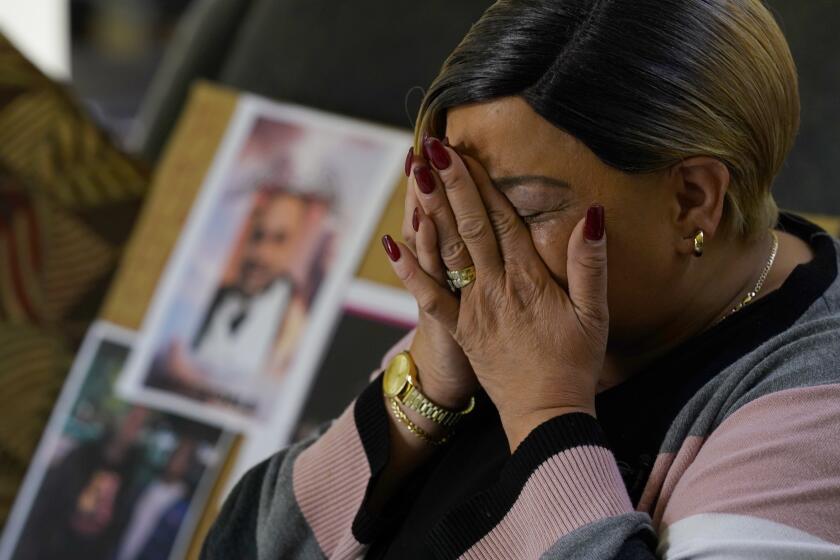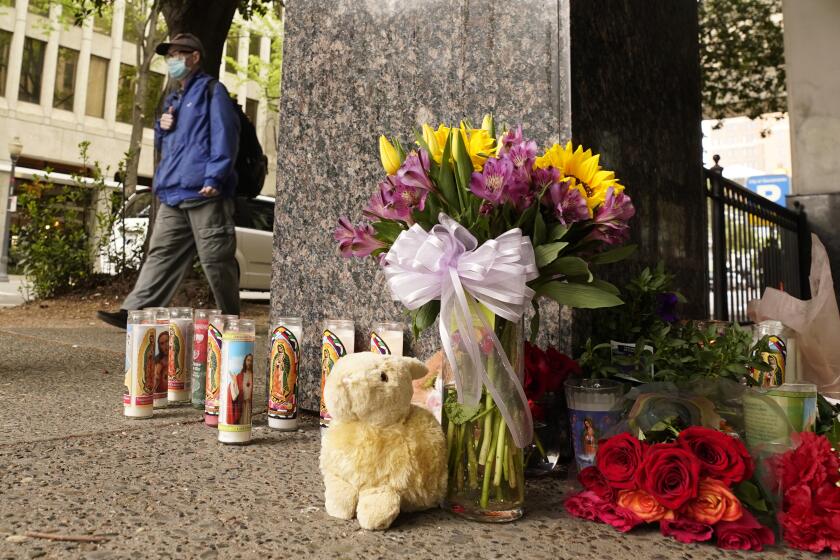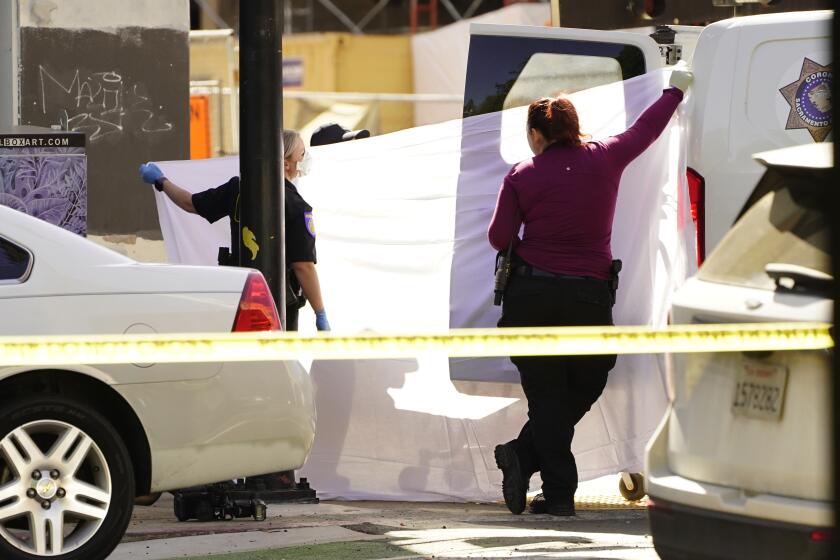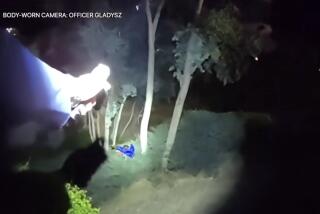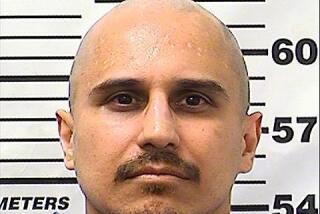A D.A. issued dire warnings about the Sacramento gun battle suspect. He was released early from prison anyway
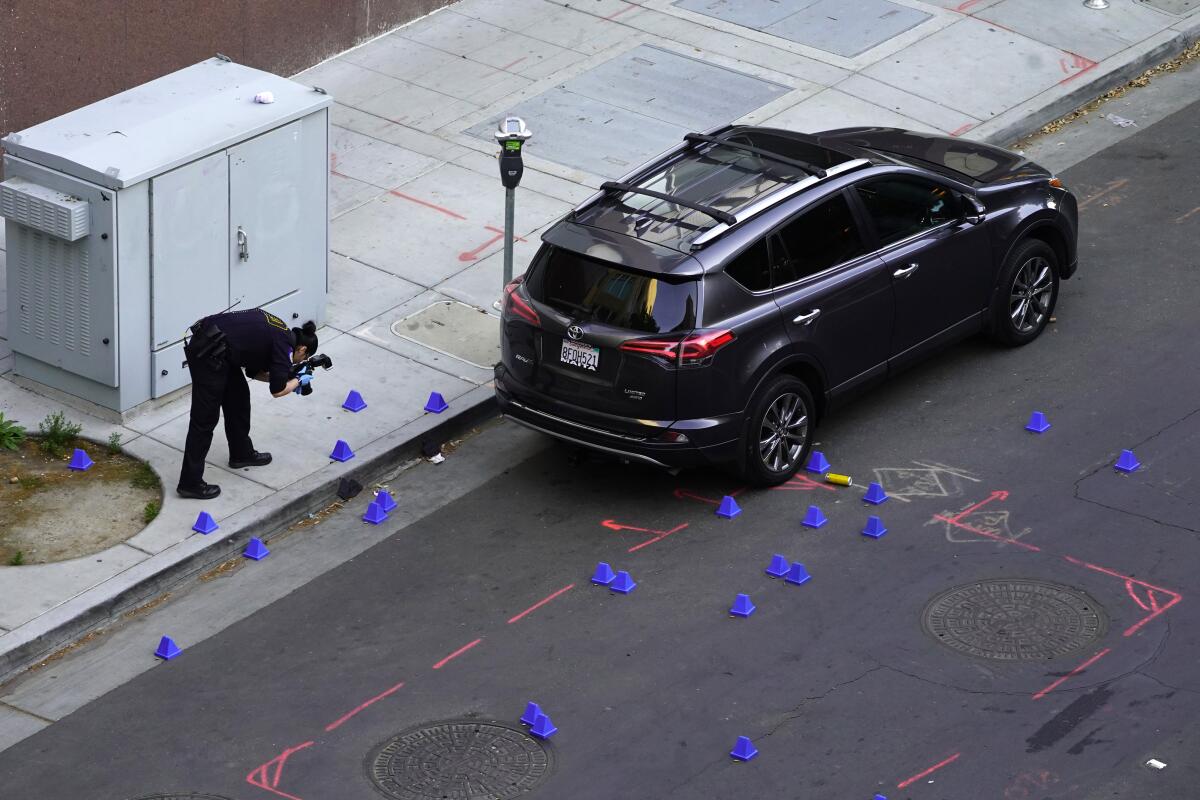
- Share via
SACRAMENTO — The man arrested for possessing a machine gun at the scene of Sunday’s deadly shooting in Sacramento was allowed to leave prison in February despite opposition from the county’s district attorney to his early release.
Smiley Martin, 27, was convicted in 2018 and was serving a 10-year sentence for domestic violence and assault when he was released.
He was arrested Tuesday morning at a Sacramento hospital on charges of being a felon in possession of a firearm and possession of a stolen handgun that was converted to be a fully automatic weapon.
Police said he was injured in a gun battle in downtown Sacramento that broke out about 2 a.m. Sunday outside a series of nightclubs, causing the deaths of six people and injuring 12.
The stolen gun used in the Sacramento mass shooting was converted into a fully automatic weapon for maximum firepower, police say.
In a video confirmed by law enforcement, he is seen wielding the gun on social media on Saturday, just hours before the shooting. His brother, Dandrae Martin, has been arrested on charges of assault with a deadly weapon and possession of a firearm by a felon.
Almost exactly a year ago, Dist. Atty. Anne Marie Schubert’s office opposed Smiley Martin’s release from state prison to the Board of Parole Hearings in a two-page letter, first reported by the Sacramento Bee. The district attorney’s office asked that he not be freed because he is a career criminal and a danger to the community. Schubert released the letter after a records request but would not comment further.
“Inmate Martin has, for his entire adult life, displayed a pattern of criminal behavior,” wrote Deputy Dist. Atty Danielle Abildgaard. “While the current case on review may not be ‘violent’ under the Penal Code, Inmate Martin’s criminal conduct is violent and lengthy.
“Inmate Martin has committed several felony violations and clearly has little regard for human life and the law, which can be shown by his conduct in his prior felony convictions of robbery, possession of a firearm and prior misdemeanor conviction of providing false information to a peace officer.”
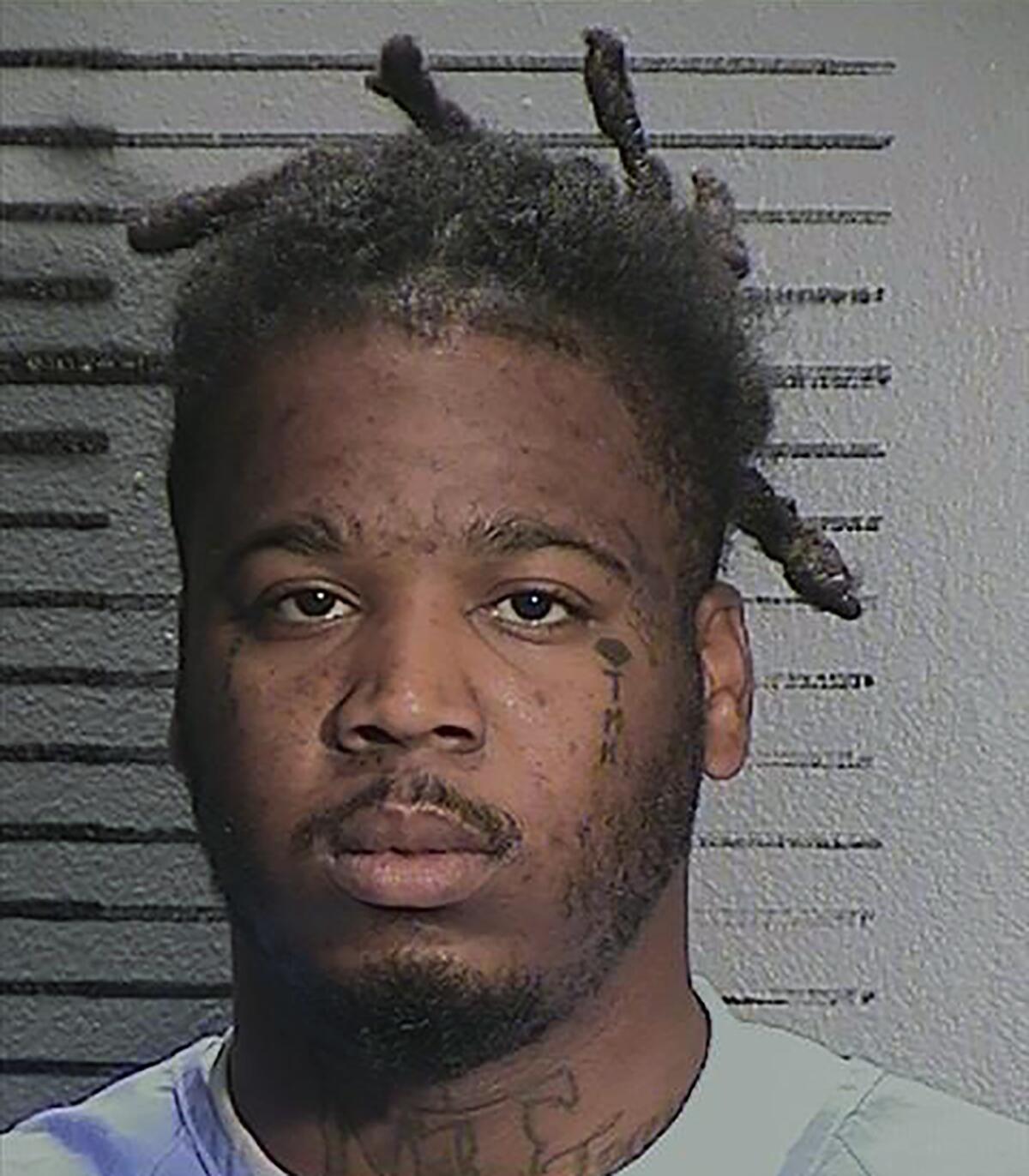
California Department of Corrections and Rehabilitation officials said the Board of Parole Hearings denied Martin parole under nonviolent parole review in May 2021, but he was later released in February 2022.
He had entered the state prison system in January 2018 with a 10-year sentence. But CDCR officials said prior to reaching a CDCR facility, Martin had already received 508 days of pre-sentencing credits, and received a variety of additional post-sentencing credits and hence was let go early this year, having served his sentence.
The prosecutor documented his history with illegal guns. “In January of 2013, just six months after his eighteenth birthday, Inmate Martin was contacted by law enforcement officers. Inmate Martin attempted to discard an assault rifle which he had concealed in his waistband under his clothing. The rifle had a pistol grip and the capacity to accept a detachable magazine in front of the pistol grip. Inmate Martin was also found to be in possession of two fully loaded twenty-five round magazines for the assault weapon.”
The prosecutor noted Martin was convicted of the assault weapon and large-capacity magazines offense and received county jail time and probation. But in November 2013, Martin and three other suspects entered a Walmart store, asked a clerk to view a Samsung Galaxy Notebook and then grabbed several Galaxy Notebooks, valued at approximately $2,800, and fled. It was one of a series of robberies, and witnesses identified Martin through surveillance photos at those subsequent robberies. Martin pleaded guilty to the robbery and was sentenced to two years in state prison.
Two brothers, one of them seriously injured in the shooting, are arrested. A stolen gun at the scene was a converted automatic weapon, police say.
Shortly after that prison term, in November 2016, Martin was stopped in a car with three other passengers, and then gave a false name and ran from the police. “Inmate Martin was eventually incapacitated with a Taser and ultimately taken into custody,” the prosecutor wrote. The officers determined he was a parolee. “One of the passengers of the vehicle Inmate Martin had been with was found to have an unregistered, loaded, handgun in her purse. Inmate Martin was charged with and ultimately pleaded guilty to giving false information to a peace officer.
“Less than six months later, Inmate Martin forcibly entered his girlfriend’s residence. He located her hiding in her bedroom closet and hit her repeatedly with a closed fist on the face, head, and body, causing visible injuries,” the deputy district attorney wrote. “He then dragged her out of the home by her hair to an awaiting car. After he put her in the car, he assaulted her with a belt.”
The subsequent police investigation determined “the victim had been working as a prostitute and that Inmate Martin had been assisting and encouraging her to be a prostitute,” according to text messages. Martin pleaded guilty to two felony assault charges for a 10-year prison sentence.
The adjustment to the gun allowed for maximum firepower. Six people were killed and 12 wounded in the Sunday shooting.
The prosecutor warned the board that Martin “is an assaultive and non-compliant individual and has absolutely no regard for his victims who are left in the wake of numerous serious offenses. He has no respect for others, for law enforcement or for the law. If he is released early, he will continue to break the law.”
In an interview with The Times, Schubert said the CDCR’s extensive use of credits amounts to an early release. “He was sentenced to 10 years, he got out in less than five.” said Schubert, a former Republican who is running as an independent for state attorney general.
She is among a group of district attorneys who sued the state over its emergency regulations that led to a reduction in the state prison population. She has repeatedly warned that the “early releases” would result in prisoners facing 10-year sentences being freed after three years and four months.
More to Read
Sign up for Essential California
The most important California stories and recommendations in your inbox every morning.
You may occasionally receive promotional content from the Los Angeles Times.
